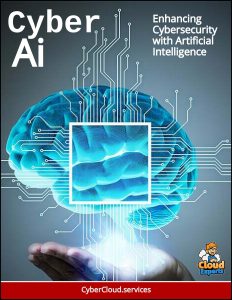What’s the Future of AI in Cybersecurity and Hacking?
Artificial Intelligence (AI) is transforming the way we live and work, and the technology has the potential to revolutionize cybersecurity and hacking.
 Artificial Intelligence (AI) is transforming the way we live and work. The technology has the potential to revolutionize cybersecurity and hacking.
Artificial Intelligence (AI) is transforming the way we live and work. The technology has the potential to revolutionize cybersecurity and hacking.
In this article, we’ll explore the future of AI in cybersecurity and hacking, and the potential risks and benefits of AI-powered attacks.
The Potential of AI in Cybersecurity
AI has the potential to enhance network security by detecting and preventing cyber threats in real-time. AI algorithms can analyze large amounts of data and identify patterns that are difficult for humans to detect. This can help security teams to respond quickly to potential threats and prevent data breaches.
AI can also be used to automate routine security tasks, such as patch management and vulnerability scanning. This can free up security teams to focus on more complex tasks, such as threat hunting and incident response.
The Risks of AI-Powered Attacks
While AI has the potential to enhance cybersecurity, it also poses new risks. AI-powered attacks can be more sophisticated and difficult to detect than traditional attacks. For example, AI algorithms can be used to generate realistic phishing emails that are difficult for users to distinguish from legitimate emails.
AI can also be used to automate attacks, such as DDoS attacks, which can overwhelm networks and cause downtime. Additionally, AI can be used to bypass security measures, such as firewalls and intrusion detection systems.
The Future of AI in Cybersecurity and Hacking
The future of AI in cybersecurity and hacking is both exciting and concerning. As AI technology continues to evolve, we can expect to see more sophisticated attacks that are powered by AI. However, we can also expect to see more advanced security measures that use AI to detect and prevent these attacks.
It’s important for organizations to stay up-to-date with the latest AI-powered threats and security measures. This includes investing in AI-powered security solutions and training employees to recognize and respond to AI-powered attacks.
In conclusion, AI has the potential to transform the cybersecurity and hacking landscape. While there are risks associated with AI-powered attacks, there are also opportunities to enhance network security and prevent data breaches. The future of AI in cybersecurity and hacking will depend on how organizations choose to use this technology.



